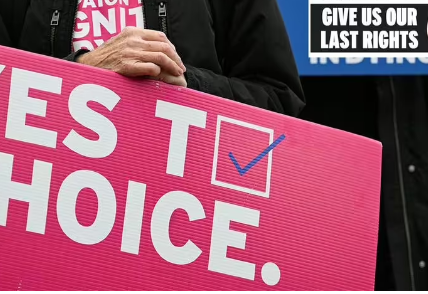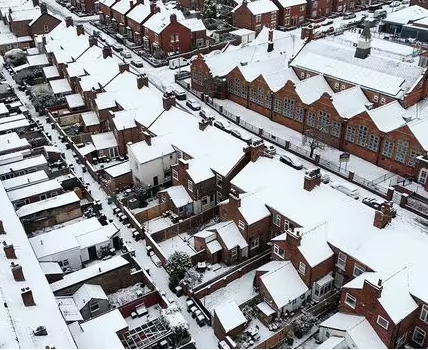Keir Starmer’s allies are planning to use their moment of “maximum power” to speedily appoint a new Labour general secretary in the next fortnight, the Guardian has learned.
Insiders said party figures were planning to install a Starmer ally in the top party job in time for the appointment to be ratified by conference in late September.
The move will help Starmer consolidate his power over the Labour party before the challenges of government begin to knock his popularity. The new general secretary will be tasked with safeguarding his internal reforms as well as fundraising and preparing for the local elections next spring.
Keir Starmer hits back at Labour cronyism claims
“It’s clear they have decided to move quickly because their capital is at the highest and the delegates [at conference] are as supportive as they will be,” a senior party official said.
A second senior party official said: “This is the last conference where they know they have control. After a year of Labour there will be a more volatile membership.”
A party source said the timeline for the appointment was similar to that in 2020, when David Evans took the role.
Hollie Ridley, Labour’s executive director for nations and regions, has emerged as the favourite to succeed Evans, who announced his resignation on Tuesday.
Ridley is Evans’s de facto deputy and is credited with running Labour’s field operation during the general election campaign. “She is incredibly highly rated by the leadership and was in charge of the field in the general election which delivered that extraordinary result,” a senior figure on the campaign said.
Her main challenger for the role is John Lehal, who was brought in as the party’s chief operating officer in April 2023 and is seen as more of an external figure with commercial experience.
The new general secretary will be installed within the next two weeks under the timeline set by the party. Applications close on 12 September and, after a shortlisting process, the successful candidate will be chosen at a meeting of Labour’s ruling national executive committee on 17 September.
The appointment will be ratified by Labour’s annual party conference, which kicks off on 22 September.
Evans became Labour’s general secretary in May 2020, two months after Starmer was elected leader. Since then, he has overseen Starmer’s internal changes to the party and its response to the equalities watchdog’s report on antisemitism, as well as preparations for the general election.
Paying tribute to him as he announced his resignation, Starmer said Evans “has been at the very centre of my mission to change the Labour party, overhauling the organisation to face outwards to voters, working unfalteringly to remove antisemitism and setting the highest standards for every aspect of our campaign machine.”
Before Evans, Labour’s general secretaries were often drawn from the trade unions. Jennie Formby, a close ally of Jeremy Corbyn, had been political director of Unite before she took the role. She succeeded Iain McNicol, who had been national political officer of GMB.
Keir Starmer’s allies are planning to use their moment of “maximum power” to speedily appoint a new Labour general secretary in the next fortnight, the Guardian has learned.
Insiders said party figures were planning to install a Starmer ally in the top party job in time for the appointment to be ratified by conference in late September.
The move will help Starmer consolidate his power over the Labour party before the challenges of government begin to knock his popularity. The new general secretary will be tasked with safeguarding his internal reforms as well as fundraising and preparing for the local elections next spring.
Keir Starmer hits back at Labour cronyism claims
“It’s clear they have decided to move quickly because their capital is at the highest and the delegates [at conference] are as supportive as they will be,” a senior party official said.
A second senior party official said: “This is the last conference where they know they have control. After a year of Labour there will be a more volatile membership.”
A party source said the timeline for the appointment was similar to that in 2020, when David Evans took the role.
Hollie Ridley, Labour’s executive director for nations and regions, has emerged as the favourite to succeed Evans, who announced his resignation on Tuesday.
Ridley is Evans’s de facto deputy and is credited with running Labour’s field operation during the general election campaign. “She is incredibly highly rated by the leadership and was in charge of the field in the general election which delivered that extraordinary result,” a senior figure on the campaign said.
Her main challenger for the role is John Lehal, who was brought in as the party’s chief operating officer in April 2023 and is seen as more of an external figure with commercial experience.
The new general secretary will be installed within the next two weeks under the timeline set by the party. Applications close on 12 September and, after a shortlisting process, the successful candidate will be chosen at a meeting of Labour’s ruling national executive committee on 17 September.
The appointment will be ratified by Labour’s annual party conference, which kicks off on 22 September.
Evans became Labour’s general secretary in May 2020, two months after Starmer was elected leader. Since then, he has overseen Starmer’s internal changes to the party and its response to the equalities watchdog’s report on antisemitism, as well as preparations for the general election.
Paying tribute to him as he announced his resignation, Starmer said Evans “has been at the very centre of my mission to change the Labour party, overhauling the organisation to face outwards to voters, working unfalteringly to remove antisemitism and setting the highest standards for every aspect of our campaign machine.”
Before Evans, Labour’s general secretaries were often drawn from the trade unions. Jennie Formby, a close ally of Jeremy Corbyn, had been political director of Unite before she took the role. She succeeded Iain McNicol, who had been national political officer of GMB.


